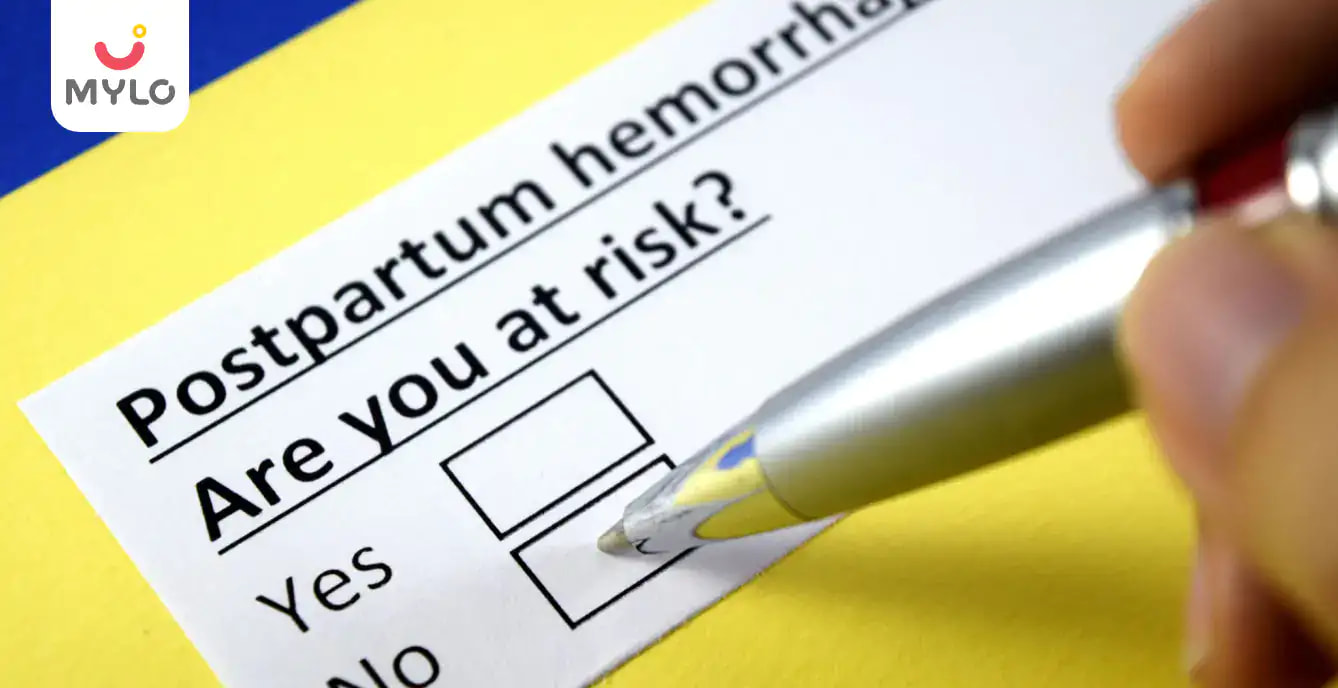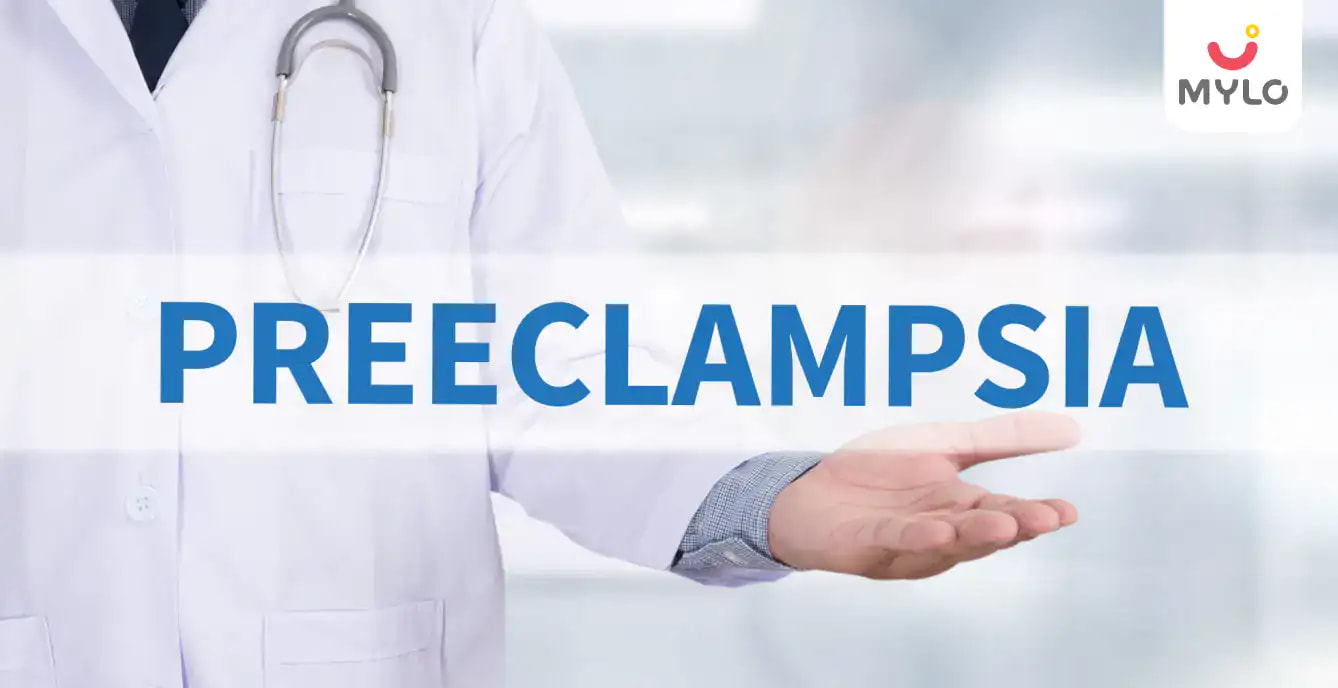Home

PTSD Meaning and Symptoms
In this Article

Pregnancy
PTSD Meaning and Symptoms
Updated on 3 November 2023
PTSD Meaning and Symptoms PTSD meaning Post Traumatic Stress Disorder is a mental health condition triggered by witnessing or experiencing a traumatic event. PTSD causes include being in a serious accident, experiencing physical or sexual assault, enduring childhood or domestic abuse, serious health problems or traumatic childbirth experiences like losing a baby.
What is PTSD?
PTSD stands for Post-Traumatic Stress Disorder. It is a mental health condition triggered by witnessing or experiencing a traumatic event. While many people live through trauma, a person diagnosed with PTSD usually lacks the support system needed to overcome the challenges posed by the condition. If symptoms worsen or last for a long time, and start interfering with your daily life, you may have to consult a mental health professional. It is important to understand that mental health issues cannot be self-diagnosed or treated, so referring to a therapist, psychologist or psychiatrist for PTSD is important.
What are the Symptoms of PTSD?
The symptoms of PTSD may begin within a month of the traumatic event. However, in some cases, the symptoms do not appear till years after the event. All or any of the PTSD symptoms can lead to problems at work, at home or in social situations. In some cases, they may even interfere with your ability to lead daily tasks.
The symptoms of PTSD can be classified into four different groups:
Intrusive memories
-
Reliving the trauma over and over again
-
Unwanted, recurrent distressing memories of the trauma
-
Severe physical reactions and emotional distress to anything that may remind you of the trauma
-
Nightmares or upsetting dreams about the event.
Negative changes in mood and thinking
-
Hopelessness about the future
-
Negative thoughts related to yourself, people around you, or generally the entire world
-
Memory issues, such as not remembering various aspects related to the trauma
-
Feeling detached from friends and family
-
Difficulty in maintaining relationships
-
Feeling emotionally numb
-
Experiencing negative emotions
-
Loss of interest in the activities that you once enjoyed
Avoidance
-
Avoiding talking about or thinking about the trauma
-
Avoiding places, people, or activities that may remind you about the event
Changes in Emotional and Physical Reactions
-
Being easily frightened or startled
-
Trouble sleeping
-
Always being on guard
-
Trouble concentrating
-
Self-destructive behavior, like driving too fast or drinking excessively
-
An overwhelming feeling of shame or guilt
-
Aggressive behavior, irritability, or angry outbursts
Besides these, in children below 6 years of age, the symptoms of PTSD may also include frightening dreams and re-enacting different aspects of the traumatic event while playing.
Intensity of Symptoms
The intensity of symptoms of PTSD can vary. You may experience more symptoms when you are more stressed or when you come across something that reminds you of the traumatic event. For instance, you may relive a combat experience on hearing a car backfire. Similarly, watching a report of the news related to sexual assault may cause you to be overcome by negative emotions about your assault.
Diagnosis of PTSD
A doctor diagnoses PTSD meaning Post-traumatic stress disorder in the following manner:
By performing a physical exam for detecting medical problems that may be the cause of your symptoms.
By doing a psychological evaluation including discussing your symptoms and the events leading up to them. This evaluation is done according to the DSM-5 (Diagnostic and Statistical Manual of Mental Disorders) published by the American Psychiatric Association.
Diagnosis of Post-Traumatic Stress Disorder requires you to be exposed to an event involving the possible or actual threat of violence, serious injury, or death. This exposure can occur in the following ways:
-
You experienced a traumatic event directly
-
You witnessed the traumatic event happening to someone else
-
You learned about someone close to you experiencing a traumatic event
-
You received repeated exposure to the graphic details of a traumatic event
Treatment for PTSD
The goal of the treatment for PTSD is to reduce physical as well as emotional symptoms and to improve your day-to-day functioning. Treatment options include:
-
Medication
Your doctor will prescribe your certain medications such as anti-depressants to treat PTSD and control symptoms such as anxiety. Other medicines prescribed for PTSD may include SSRIs, mood stabilizers, antipsychotics, and tricyclic antidepressants.
-
Psychotherapy
Psychotherapy involves helping you learn to manage your symptoms by developing a coping mechanism that suits your needs the best. It also aims to educate you and your family about the disorders and ways to manage the condition. A variety of options are available when it comes to psychotherapy, including:
o Cognitive behavioral therapy
o Prolonged exposure therapy
o Psychodynamic therapy
o Family therapy
o Group therapy
o Eye Desensitization & Reprocessing (EMDR)
Conclusion
Recovery from PTSD is an ongoing and gradual process. The symptoms seldom disappear completely but with the right course of treatment, you can learn to manage your symptoms effectively. Treatment can result in fewer and less intense symptoms and allow you to successfully manage your feelings about the trauma. If you believe you are suffering from PTSD, make sure to consult your healthcare provider and get yourself diagnosed.
Reference
Mayo Clinic Staff. July 06, 2018. Post-traumatic stress disorder (PTSD)



Written by
Mittali Khurana
Mittali is a content writer by profession. She is a dynamic writer with 04+ years of experience in content writing for E-commerce, Parenting App & Websites, SEO.
Read MoreGet baby's diet chart, and growth tips

Related Articles
Related Questions
Hello frnds..still no pain...doctor said head fix nhi hua hai..bt vagina me pain hai aur back pain bhi... anyone having same issues??

Kon kon c chije aisi hai jo pregnancy mei gas acidity jalan karti hain... Koi btayega plz bcz mujhe aksar khane ke baad hi samagh aata hai ki is chij se gas acidity jalan ho gyi hai. Please share your knowledge

I am 13 week pregnancy. Anyone having Storione-xt tablet. It better to have morning or night ???

Hlo to be moms....i hv a query...in my 9.5 wk i feel body joint pain like in ankle, knee, wrist, shoulder, toes....pain intensity is high...i cnt sleep....what should i do pls help....cn i cosult my doc.

Influenza and boostrix injection kisiko laga hai kya 8 month pregnancy me and q lagta hai ye plz reply me

Related Topics
RECENTLY PUBLISHED ARTICLES
our most recent articles

Diet & Nutrition
গর্ভাবস্থায় আলুবোখরা: উপকারিতা ও ঝুঁকি | Prunes During Pregnancy: Benefits & Risks in Bengali

Diet & Nutrition
গর্ভাবস্থায় হিং | ঝুঁকি, সুবিধা এবং অন্যান্য চিকিৎসা | Hing During Pregnancy | Risks, Benefits & Other Treatments in Bengali

Women Specific Issues
স্তনের উপর সাদা দাগ: লক্ষণ, কারণ এবং চিকিৎসা | White Spots on Nipple: Causes, Symptoms, and Treatments in Bengali

Diet & Nutrition
গর্ভাবস্থায় পোহা: উপকারিতা, ধরণ এবং রেসিপি | Poha During Pregnancy: Benefits, Types & Recipes in Bengali

Diet & Nutrition
গর্ভাবস্থায় মাছ: উপকারিতা এবং ঝুঁকি | Fish In Pregnancy: Benefits and Risks in Bengali

Diet & Nutrition
গর্ভাবস্থায় রেড ওয়াইন: পার্শ্ব প্রতিক্রিয়া এবং নির্দেশিকা | Red Wine During Pregnancy: Side Effects & Guidelines in Bengali
- ইনার থাই চ্যাফিং: কারণ, উপসর্গ এবং চিকিৎসা | Inner Thigh Chafing: Causes, Symptoms & Treatment in Bengali
- গর্ভাবস্থায় ব্রাউন রাইস: উপকারিতা ও সতর্কতা | Brown Rice During Pregnancy: Benefits & Precautions in Bengali
- Velamentous Cord Insertion - Precautions, Results & Safety
- Unlock the Secret to Flawless Skin: 7 Must-Have Qualities in a Face Serum
- Unlock the Secret to Radiant Skin: How Vitamin C Serum Can Transform Your Complexion
- Gender No Bar: 10 Reasons Why Everyone Needs a Body Lotion
- Unlock the Secret to Radiant Skin How to Choose the Perfect Body Lotion for Your Skin Type
- Top 10 Reasons to Apply a Body Lotion After Every Bath
- Communication in Toddlers: Milestones & Activities
- How to Improve Vocabulary for Toddlers?
- A Comprehensive Guide to Understanding Placenta Accreta
- Vulvovaginitis in Toddlers Causes, Symptoms and Treatment
- A Comprehensive Guide to Understanding Cerebral Palsy in Children
- Bitter Taste in Mouth During Pregnancy: Understanding the Causes and Remedies


AWARDS AND RECOGNITION

Mylo wins Forbes D2C Disruptor award

Mylo wins The Economic Times Promising Brands 2022
AS SEEN IN
















- Mylo Care: Effective and science-backed personal care and wellness solutions for a joyful you.
- Mylo Baby: Science-backed, gentle and effective personal care & hygiene range for your little one.
- Mylo Community: Trusted and empathetic community of 10mn+ parents and experts.
Product Categories
baby carrier | baby soap | baby wipes | stretch marks cream | baby cream | baby shampoo | baby massage oil | baby hair oil | stretch marks oil | baby body wash | baby powder | baby lotion | diaper rash cream | newborn diapers | teether | baby kajal | baby diapers | cloth diapers |








